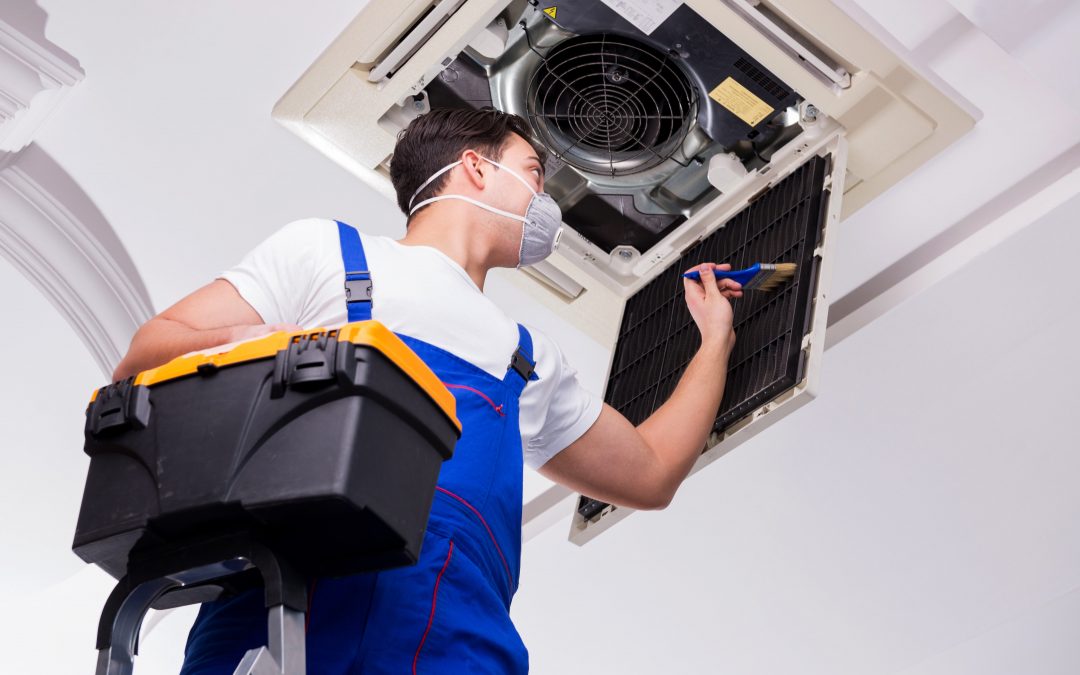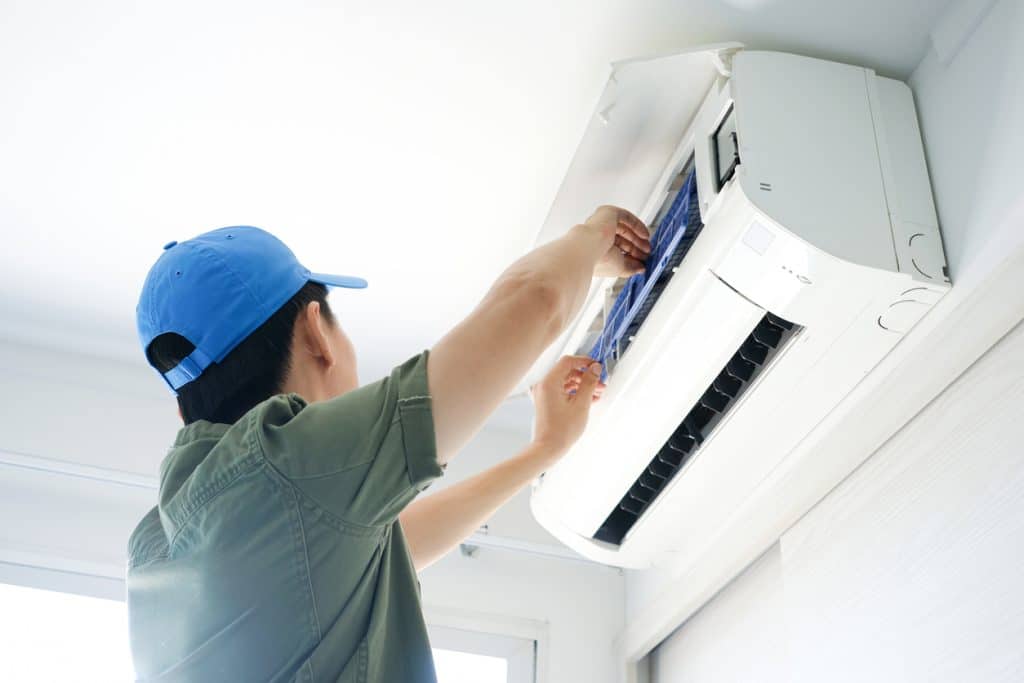When to call the pros for a quick ac fix
Wiki Article
Comprehending HVAC: Common Issues of Air Conditioning Devices and Their Solutions
HVAC systems play a crucial function in keeping indoor convenience. Nonetheless, cooling devices typically encounter usual problems that can prevent their efficiency. Problems like insufficient air conditioning, uncommon sounds, and constant biking can indicate deeper mechanical concerns. Additionally, water leakages and undesirable odors can jeopardize air quality. Understanding these obstacles and their remedies is very important for effective maintenance. What actions can homeowners require to ensure their air conditioning devices run successfully?Inadequate Cooling Performance
What triggers inadequate cooling efficiency in an a/c system? Numerous factors can add to this problem. A common cause is a dirty air filter, which restricts air movement and decreases cooling effectiveness. Furthermore, reduced cooling agent degrees due to leaks can impede the system's ability to absorb heat effectively. One more potential trouble might arise from a malfunctioning thermostat, bring about incorrect temperature level readings and incorrect air conditioning cycles. Blocked or filthy condenser coils can likewise prevent warm dissipation, more influencing performance. Ductwork concerns, such as leaks or blockages, can result in irregular cooling throughout an area. Identifying these troubles without delay is important for maintaining ideal a/c function and making sure a comfortable interior atmosphere. Routine upkeep and evaluations can aid reduce these concerns and improve the system's total efficiency.Uncommon Noises Originating From the Air Conditioning System
A variety of unusual sounds coming from an AC device can suggest underlying issues that need attention. Usual audios include rattling, which may suggest loose components or particles within the device. Hissing noises typically indicate refrigerant leaks, jeopardizing the system's performance. A grinding noise could indicate damaged bearings or motor problems, while a shrill screech could signify an issue with the compressor or a slipping belt.Each of these noises functions as an indication that something may be wrong, potentially causing even more significant damage if not dealt with quickly. Property owners must prevent ignoring these auditory hints and consider getting in touch with a qualified cooling and heating professional for diagnosis and repair. Timely intervention can not only restore functionality however additionally expand the lifespan of the system. HVAC company. Acknowledging these noises as indications of problem is essential for maintaining peak a/c efficiency
Frequent Cycling On and Off
Frequent cycling on and off can show ineffectiveness or malfunctions within a heating and cooling system, commonly referred to as short-cycling. This problem can result in enhanced energy intake and might cause unneeded wear on the device's components. Numerous elements can add to this issue, including an incorrectly sized cooling device, a malfunctioning thermostat, or filthy air filters. When an air conditioning device is too huge for the room, it cools also quickly, triggering it to cycle regularly without appropriately evaporating the air. If the thermostat is malfunctioning, it might incorrectly signal the device to turn on and off. Additionally, blocked or dirty air filters can limit airflow, prompting the system to function harder and cycle much more frequently. Attending to these concerns immediately is vital to improve effectiveness, extend the life expectancy of the heating and cooling system, and keep excellent indoor comfort.Water Leaks and Water Drainage Issues
Water leaks and drain problems can pose significant challenges for heating and cooling systems, resulting in prospective damage and ineffectiveness. These troubles commonly stem from clogged up condensate drains pipes, which prevent water from draining pipes properly and can lead to overflow. In addition, harmed drainpipe pans or inappropriate installment may aggravate these leakages, creating water to collect in unwanted locations.
Normal maintenance is necessary to prevent such issues; ensuring that condensate lines are clear and drainpipe frying pans are intact can mitigate the danger of leakages. Property owners should regularly examine for indications of dampness around the system, as early discovery can avoid more comprehensive damages. In situations where leakages are identified, instant action is called for, which might include getting rid of clogs or replacing defective elements. Attending to water leakages and drainage issues not only secures the cooling and heating system however also keeps interior air quality and convenience.
Bad Odors and Air High Quality Worries
Bad odors rising from heating and cooling systems can suggest significant air quality issues. Common resources of these unpleasant scents include mold and mildew, mold, or germs growth in the ductwork, typically due to moisture buildup. If the system has an unpleasant, mildewy odor, it might signify that the air filters are obstructed or that there is not enough air flow, permitting impurities to distribute. Furthermore, a burning odor might suggest electric problems or overheating elements, needing instant interest.Property owners need to consistently replace air filters and schedule routine upkeep to ensure peak air high quality. Making use of an air cleanser can additionally assist remove smells and improve indoor air quality. If odors continue regardless of these steps, expert evaluation and cleansing might be required to identify and settle underlying issues. air conditioner repair. Awareness of these smells is crucial, as they can affect wellness and comfort in indoor settings

Frequently Asked Concerns
How Frequently Should I Set Up A/c Maintenance?
It is recommended to set up a/c maintenance at least yearly, preferably prior to the cooling period starts. Normal examinations can help determine concerns early, ensuring efficient operation and extending the life-span of the device.
What Is the Ordinary Life-span of an Air Conditioner Unit?
The typical life expectancy of an air conditioning device generally ranges from 15 to two decades. Elements such as upkeep, use patterns, and ecological conditions can significantly affect this period, influencing overall efficiency and efficiency with time.Exactly how Do I Choose the Right Size AC Device for My Home?

What Are the Indications My AC Device Demands Replacement?

Can I Mount an Air Conditioner System Myself?
While mounting an air conditioner device oneself is feasible, it calls for technical knowledge and appropriate tools. ac unit replacement. Numerous individuals might deal with challenges with installation, possibly leading to inadequacy or safety and security dangers, making specialist assistance advisable for ideal outcomesVerdict
In summary, recognizing typical a/c issues and their services is essential for preserving effective a/c device efficiency. Attending to problems such as poor cooling, uncommon sounds, constant biking, water leakages, and undesirable smells can greatly improve indoor comfort and air quality. Routine maintenance, consisting Fix broken Air conditioner of filter changes and prompt repairs, plays a significant duty in avoiding these problems. By remaining proactive, house owners can assure their heating and cooling systems run properly, inevitably extending the life-span of their cooling units.Report this wiki page